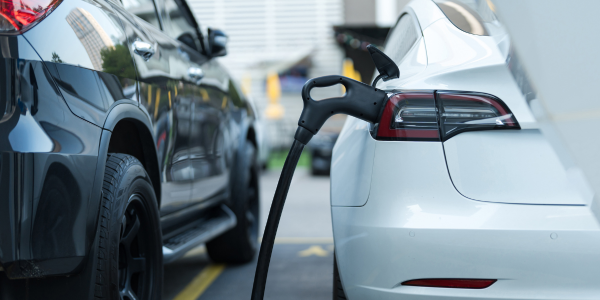Electric Vehicle (EV) sales are on the rise, and with it, the demand for charging infrastructures. Auto dealers can meet this demand by incorporating EV charging stations at their dealership locations, providing test drives, and offering customers the convenience of charging while they shop. Auto dealer groups can leverage EV charging initiatives not just for customer convenience but to drive sales, future-proof their businesses, and position themselves as environmentally responsible leaders in electric mobility. In this blog, we will explore the benefits and best practices for auto dealer groups to successfully embrace EV charging initiatives.
Incorporate EV charging stations at dealership locations: Auto dealer groups can drive more sales by incorporating EV charging stations at their dealership locations. This allows potential customers to see and experience the convenience of EV charging first-hand. Not only does this provide added convenience, but it also assures customers that their future EV will have access to charging infrastructures. Moreover, the provision of charging stations is essential to maintaining customer satisfaction since customers need to recharge their EVs when they visit dealerships for maintenance or repairs.
Educate sales staff on EV technology and provide comprehensive training: Dealership sales staff should be adequately prepared to handle EV inquiries. Auto dealer groups should invest in training sales staff about EV technology, charging infrastructure, and associated incentives. This empowers sales staff to provide in-store consultations while assisting potential customers interested in purchasing an EV. Improving the knowledge base of sales staff will aid in converting potential customers, resulting in increased EV sales and satisfied customers.
Offer charging solutions as part of the vehicle purchase package: Auto dealer groups can increase revenue by offering charging solutions as part of the vehicle purchase package. This enables them to upsell to customers and provides added convenience and cost savings for the buyer. Furthermore, this opens an opportunity for dealerships to partner with providers for exclusive charging benefits or even charge each customer for the electricity used, which will generate additional earnings.
Ensure service centers are well-equipped to handle EV maintenance and repairs: As with any other vehicle, maintenance and repairs are an essential component of EV ownership. Auto dealer groups should make sure that their service centers are equipped for handling EV maintenance and repairs. This assures customers that the dealership is capable and experienced, contributing to customer satisfaction. This added competency gives customers peace of mind knowing that their dealership is prepared to handle any issues that arise throughout their ownership, especially concerning EVs’ specialized needs.
Build EV charging as an additional revenue stream: Auto dealer groups can generate additional revenue by building EV charging as an additional revenue stream. This can be achieved by charging customers for the use of chargers or forming partnerships with EV charging network providers. These partnerships can provide exclusive benefits to the dealership or even generate commissions for every charge initiated at the dealership. By setting up EV charging as an additional revenue stream, dealerships can significantly increase revenue while accommodating customer demands for EV charging.
Auto dealer groups should embrace EV charging initiatives to drive more sales, future-proof their businesses, and position themselves as environmentally responsible leaders in electric mobility. Incorporating EV charging stations, providing comprehensive EV technology education to sales staff, offering charging solutions as part of the package, building EV charging as an additional revenue stream, and participating in government incentives can be game changers for dealership groups. These initiatives make charging EVs more convenient for customers while increasing revenue and positioning the dealership as a leader in the industry. By working together with EV manufacturers, dealerships can achieve a seamless transition into the EV market, create loyalty programs, and participate in joint campaigns and offer events, attracting potential buyers to their dealerships. By taking these steps, auto dealer groups can not only drive revenue but also build their brand as a sustainable, dependable resource for the new era of electric mobility.
